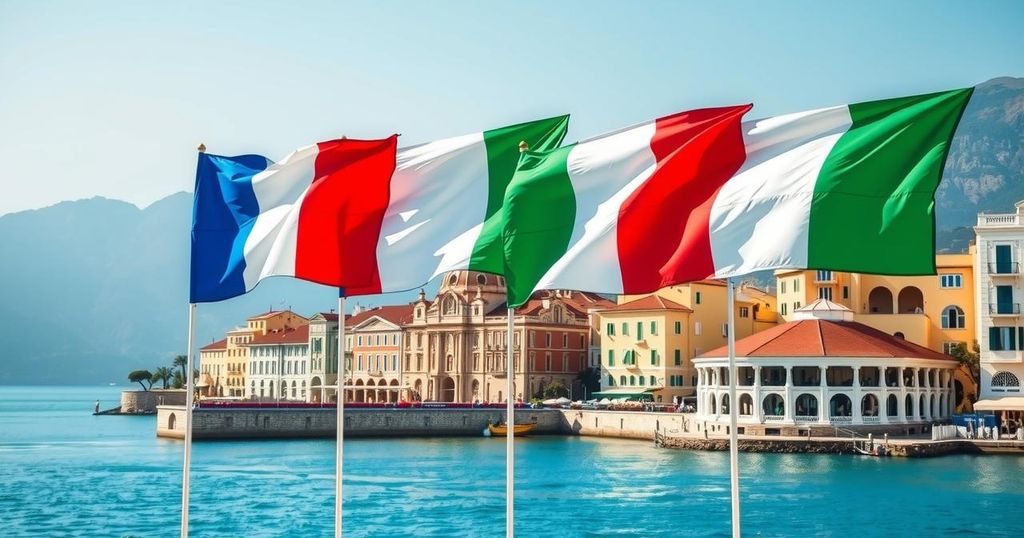Amid the final weeks leading up to the U.S. presidential election, American officials are doubtful about achieving a ceasefire in Gaza while expressing optimism for a resolution in Lebanon. High-ranking diplomats are engaging in discussions to de-escalate tensions as protests highlight the political liability of the ongoing conflicts for U.S. candidates. Recent discussions have brought forth a proposal for a month-long ceasefire in exchange for hostages, although negotiations face numerous challenges.
American officials express skepticism regarding the effectiveness of a final diplomatic effort to halt hostilities in Gaza prior to the upcoming U.S. presidential election on Tuesday. This uncertainty is rooted in the belief that Israeli Prime Minister Benjamin Netanyahu is strategically awaiting the results of the election. Conversely, there is a sense of increased optimism surrounding the cessation of violence in Lebanon, with caretaker Prime Minister Najib Mikati indicating that discussions aimed at resolving cross-border tensions between Israel and Hezbollah may soon reach a resolution. “We are doing our best and are optimistic that within the next few hours or days we will have a ceasefire,” Mikati stated in a recent interview. Despite ongoing diplomatic engagements by high-ranking U.S. officials, including CIA Director Bill Burns, who is currently in Cairo meeting with Egyptian President Abdel Fattah El-Sisi, there remains a prevailing sentiment that significant breakthroughs in the Gaza conflict will likely not materialize before the election. U.S. envoys such as Amos Hochstein and Middle East Coordinator Brett McGurk are focusing their efforts on hostage negotiations and establishing security protocols for northern Israel amid concerns expressed by Netanyahu regarding Israel’s capacity to enforce any ceasefire. As the political landscape shifts with the election nearing, the implications of the Gaza war on U.S. domestic politics are becoming increasingly apparent. Vice President Kamala Harris has encountered protests demanding a ceasefire during her campaign speeches, illustrating the tension surrounding U.S. involvement in the region. In light of the United States, Israel, and Qatar’s efforts to propose a month-long ceasefire in exchange for hostages, American officials remain cautiously optimistic. However, challenges persist regarding the specifics of the hostages to be released, along with the continued insistence from Hamas on a guaranteed permanent ceasefire before agreeing to any temporary arrangement. Following Hamas leader Yahya Sinwar’s recent death, U.S. officials perceive an opportunity for progress, yet doubts linger about Hamas’s willingness to accept terms excluding a permanent resolution. In Lebanon, Mikati’s confidence in achieving a ceasefire between Israel and Hezbollah highlights a contrasting scenario, with hopes for a diplomatic resolution gaining traction amid ongoing discussions.
The article discusses the complex geopolitical landscape in relation to the ongoing conflicts in Gaza and Lebanon, particularly in the context of upcoming U.S. elections. It highlights the diplomatic efforts by U.S. officials to negotiate ceasefires and de-escalate violence, which are complicated by internal and external political dynamics in the region. The backdrop of the article involves heightened tensions as U.S. officials balance the demands for peace with the realities of wartime negotiations. The framework of U.S. foreign policy in the Middle East is also examined, particularly how domestic political pressures shape these international discussions.
In conclusion, the U.S. administration’s final diplomatic push to achieve peace in Gaza appears fraught with challenges as the presidential election draws near. Although there is rising optimism regarding a ceasefire in Lebanon, skepticism persists regarding progress in Gaza. The intersection of domestic political considerations and foreign policy demonstrates the intricate dynamics at play, with the possibility of a ceasefire proposal still under negotiation but facing significant hurdles. As U.S. officials engage in urgent talks, the outcomes will likely have implications for both international relations and domestic political sentiment.
Original Source: www.cnn.com




